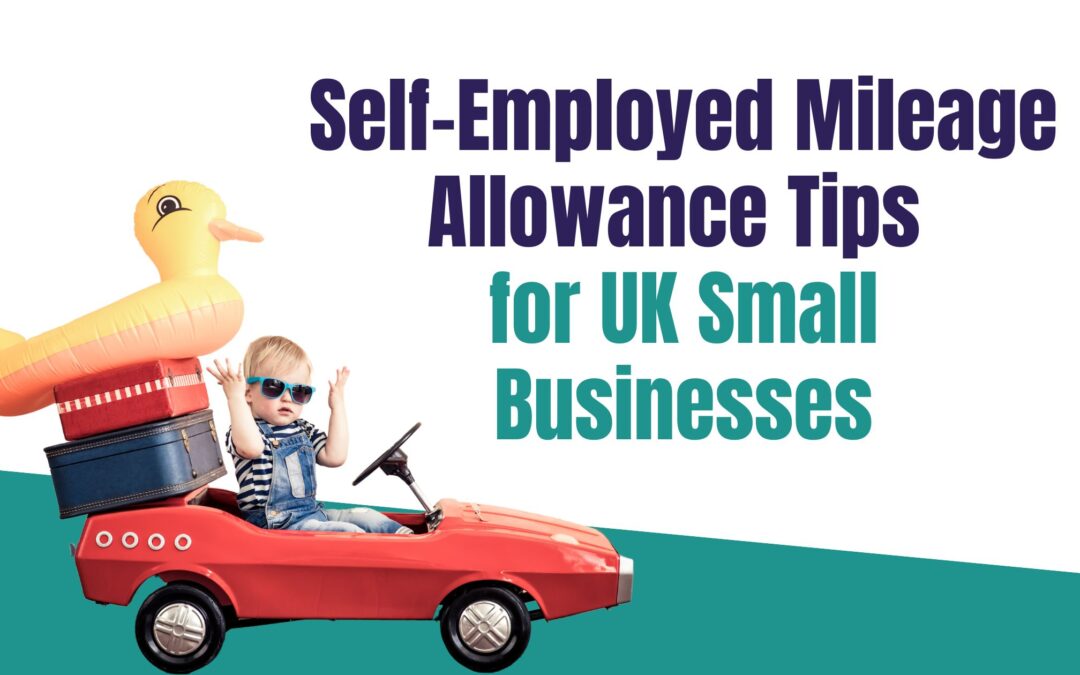As a self-employed individual in the UK, managing your finances can sometimes feel like a full-time job. Among the many expenses you need to keep track of, mileage is a significant one, especially if you use your vehicle frequently for business purposes.
Understanding the HMRC mileage allowance rates for 2024 can help you claim the maximum relief possible and keep more of your hard-earned money in your pocket.
HMRC-Approved Mileage Rates 2024
For the tax year 2024/2025, the official HMRC business mileage rates are as follows:
- Cars and Vans: 45p per mile for the first 10,000 business miles, then 25p per mile for each additional mile.
- Motorcycles: 24p per mile.
- Bicycles: 20p per mile.
These rates apply from 6 April 2024 until 5 April 2025. It’s crucial to apply these rates correctly to ensure you are compliant and to maximise your tax relief.
Mileage Rates for Motorcycles and Bicycles
The rates for motorcycles and bicycles remain unchanged from previous years. Motorcycles are reimbursed at 24p per mile, while bicycles are at 20p per mile. These rates have been fixed since 2011, and despite rising fuel and maintenance costs, they have not been adjusted.
How to Apply the Business Mileage Rates
If You’re an Employer
Employers can reimburse their employees for business-related driving at these HMRC-approved rates. If the reimbursement exceeds these rates, the excess will be taxed as income.
If You’re an Employee
Employees using their personal vehicles for work can receive reimbursement from their employers, known as Mileage Allowance Payments (MAP). If the reimbursement is lower than the HMRC rates or not provided at all, employees can claim Mileage Allowance Relief (MAR) from HMRC for the difference.
If You’re Self-Employed
Self-employed individuals can claim mileage allowance at the end of the tax year using the flat pence per mile rate (simplified method) or by calculating the actual costs of running and maintaining their vehicle.
Keeping a Mileage Log in 2024
Whether you are seeking reimbursement from an employer or claiming deductions from HMRC, maintaining an accurate mileage log is essential. Your mileage log should include:
- Date and purpose of the journey
- Distance travelled
- Start and end points of your journey, with full addresses and postcodes
Automated Mileage Tracking and Logging
While some may prefer the traditional pen-and-paper method for logging mileage, this can be time-consuming and prone to errors. Automated mileage tracking apps can simplify this process, providing real-time tracking and HMRC-compliant reports at the end of each tax year.
Frequently Asked Questions
Can I claim mileage allowance if I am self-employed?
Yes, self-employed individuals can claim mileage allowance using either the simplified (flat rate) method or the actual cost method.
What does the 45p mileage allowance cover?
The 45p per mile rate covers all vehicle costs for the first 10,000 business miles in a tax year. For electric vehicles, this rate remains constant even after surpassing the 10,000-mile threshold.
What is the mileage allowance for 2024/25?
For petrol/diesel cars and goods vehicles, it is 45p per mile for the first 10,000 miles and 25p per mile thereafter. Electric vehicles maintain a 45p per mile rate for all business mileage.
Can I claim a van as a business expense?
Yes, if you use a van for your business, you can claim its purchase cost as a capital allowance. However, if you do so, you cannot use the flat rate mileage allowance for that vehicle.
Claiming mileage allowance as a self-employed individual can significantly reduce your taxable income, making it an essential aspect of your financial management. By understanding and correctly applying the HMRC-approved mileage rates, you can ensure compliance and maximise your tax relief.
For more information and personalised advice, Accounts Direct is here to help. Our expert team specialises in helping small businesses navigate the complexities of tax and accounting.
Get in touch today to see how we can assist you in making the most of your mileage allowance and other business expenses.
For official information, visit the GOV.UK Rates and Allowances page.
By staying informed and organised, you can drive (pun intended) your business forward with confidence, knowing that you are making the most of the available tax reliefs.

